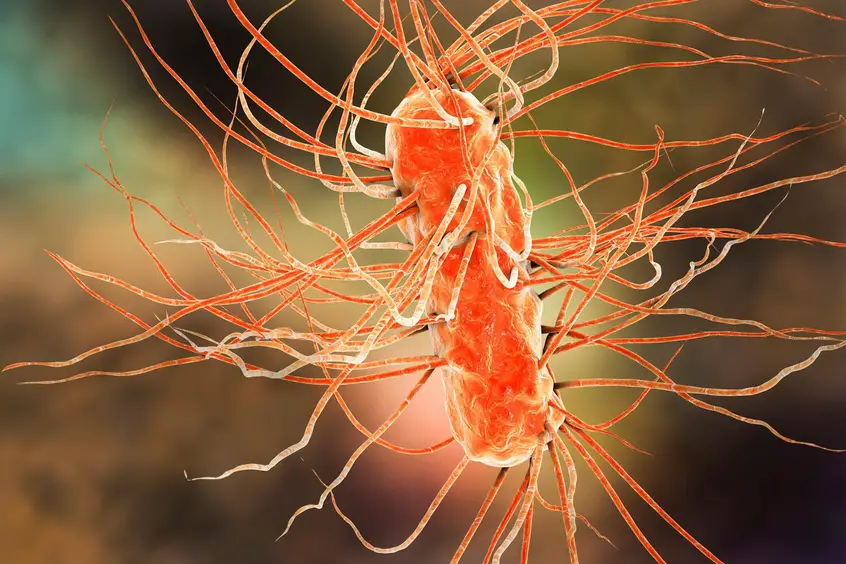Bactery's memory can used to turn it against other bacteria.
Researchers noticed that bacteria have memories. Those memories are stored in its chemical DNA-based control system. And they involve data about chemical stress that bacteria face. If bacteria faces some kind of chemical stress data about that stress is stored in the bactery's DNA. Then it can transmit this information to other bacteria. The thing. That makes "superbacteria" so hard to eliminate are "hairs".
That denies medicals to take effect on the bacteria's body. Making that hard requires energy. And that's why at least some super bacteria are vulnerable against other bacteria. The medicine against those super bacteria can be some kind of nanotechnology-based solution that involves enzymes and acids that remove the hair from those bacteria. Or the nanomachine can simply slip into the bacteria and destroy its internal organelles.
"Researchers at The University of Texas have discovered that bacteria, specifically E. coli, use iron levels to store and recall information about behaviors like swarming and forming biofilms. This ability, akin to a form of memory, could lead to new methods of combating bacterial infections and antibiotic resistance." (ScitechDaily.com/Scientists Have Discovered That Bacteria Have “Memories”)
Bacteria store data about chemical stress in their DNA. And that's why we can say that bacteria have memories. Bacteria also communicate with chemical signals. And those things can be used to turn bacteria against each other.
In some other visions, researchers will try to program bacteria to destroy other bacteria. The idea is to benefit bacteria's ability to exchange genomes. In that model, an artificial virus or nanomachine transports the genome to a bacterium. That makes it able to create DNA bites that order other bacteria to die. The idea is to benefit the bacteria's memory. When bacteria face some chemical stress.
It sends a chemical signal about that thing. And if bacteria survives from that stress it sends chemical marks about that thing to other bacteria in that colony. That tells other bacteria that it's strong, and other bacteria require its genomes. Genetically engineered bacteria can use those chemical signals to call other bacteria to exchange genetic data with it, and in that process, bacteria can send the genome or DNA that orders the other bacteria to die.
https://scitechdaily.com/scientists-have-discovered-that-bacteria-have-memories/



No comments:
Post a Comment
Note: Only a member of this blog may post a comment.